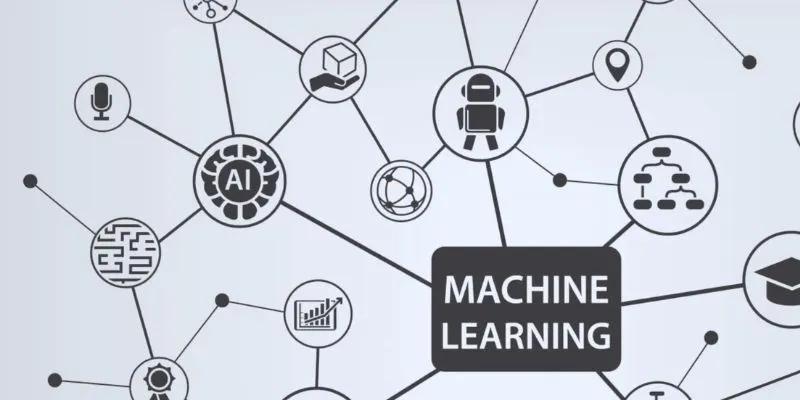Sasha Luccioni isn’t your typical machine learning expert. Her work merges technical prowess with social responsibility, emphasizing ethics, transparency, and environmental consciousness. Unlike many who prioritize AI performance and growth, Sasha focuses on its ethical and ecological dimensions. Her journey from neuroscience to AI reflects a broader realization: machine learning is as much about social implications as it is about technical advancements.
At Hugging Face, she tackles big questions about AI’s impact and accountability with robust data. By creating open tools and maintaining open communication, Sasha is helping redefine what it means to be a machine learning expert today—balancing innovation with awareness.
Merging AI With Environmental Awareness
Sasha Luccioni is a pioneer in making environmental impact a core concern in AI. Large models require significant resources, prompting her to ask, at what environmental cost? After earning her Ph.D. in cognitive neuroscience and computational modeling, she turned her focus to machine learning, quickly identifying the industry’s growing carbon footprint as a pressing issue.
At Hugging Face, she spearheads efforts to track AI’s environmental costs. She developed tools that quantify the electricity used by models and the resulting pollution. By sharing these tools openly, researchers can now see the ecological impacts of their work, encouraging many to consider emissions when developing large models.
Her goal is straightforward: make the invisible visible. AI development often obscures its physical costs—data centers, power consumption, cooling systems. By quantifying these impacts, Sasha provides a grounded perspective in a field often preoccupied with speed and scale. Her work challenges the notion that progress should come without limits.
Ethics and Social Responsibility in Machine Learning
Machine learning systems don’t function in isolation. The data they use often contains biases, a point Sasha Luccioni emphasizes in her research. She highlights that models trained on vast internet data can perpetuate and even amplify social inequalities. These aren’t side effects—they are direct consequences of design decisions.

Sasha investigates how bias infiltrates AI systems and becomes harder to trace as models grow more complex. She advocates for better documentation and transparency around training data, alongside public discussions of risks. These aren’t abstract concerns; they determine whether models treat people fairly or make flawed assumptions.
Not just a researcher, Sasha is also an adept communicator. She explains technical concepts to broader audiences, making AI’s risks understandable without oversimplifying. Her appearances in media, public events, and policy hearings underscore her call for stronger safeguards and clearer accountability in AI development.
Her message is consistent: machine learning must be built with care. How systems are designed, trained, and deployed shapes their behavior. Ignoring these factors leads to systems that not only fail but also cause harm.
Open Science and the Push for Transparency
Sasha Luccioni champions openness—not just as a research principle but as a means to build trust. At Hugging Face, she works on projects prioritizing transparency in AI, from releasing code to documenting model training processes and data dependencies.
A notable example is the “Machine Learning Emissions Calculator.” This tool helps developers understand the energy and emissions costs of their models, transforming abstract concerns into tangible numbers and charts. Sasha hopes that by providing clearer information, developers will make better choices.
Her advocacy for open science extends to policy discussions. She emphasizes climate and ethical standards in AI regulation talks. While supporting technological advancement, she argues for clearer boundaries. People should understand what systems are doing, how they were built, and the trade-offs involved.
By promoting open development, Sasha fosters collaboration across the AI community. Openness allows others to study, question, and enhance existing systems—something challenging when models are kept proprietary. Her approach nurtures a culture of learning over competition.
Redefining What It Means to Be a Machine Learning Expert
The traditional image of a machine learning expert involves coding, math, and performance metrics. Sasha Luccioni changes that narrative. She navigates policy settings with as much ease as she does Python, allowing her to think beyond model accuracy. Her expertise spans environmental science, ethics, and communication—a rare combination in a field traditionally focused on technical aspects.

Sasha collaborates across disciplines and engages with diverse audiences. This enables her to influence both the design of AI systems and the conversations surrounding them. Her work demonstrates that technical skill is just one facet of the job. Equally vital is asking the right questions and considering real-world outcomes.
Rather than rejecting large models or innovation, she focuses on the costs—social, environmental, and ethical—and how to manage them better. Her work underscores that scale should not come at the expense of care, bringing a balance often missing in machine learning.
Sasha is part of a new generation of AI experts who aim to build systems reflecting human values, not just technical goals. This shift is critical because AI isn’t just shaping software—it’s shaping decisions, experiences, and opportunities.
Conclusion
Sasha Luccioni stands out by merging research skills with social awareness. Her work addresses not just how machine learning systems perform but how they impact people and the planet. From tools that reveal AI’s energy consumption to research on bias and fairness, she consistently advocates for an AI that is transparent, accountable, and sustainable. By intertwining science with responsibility, she models how progress can mean building thoughtful, open, and inclusive systems designed for more than just performance.
 zfn9
zfn9























